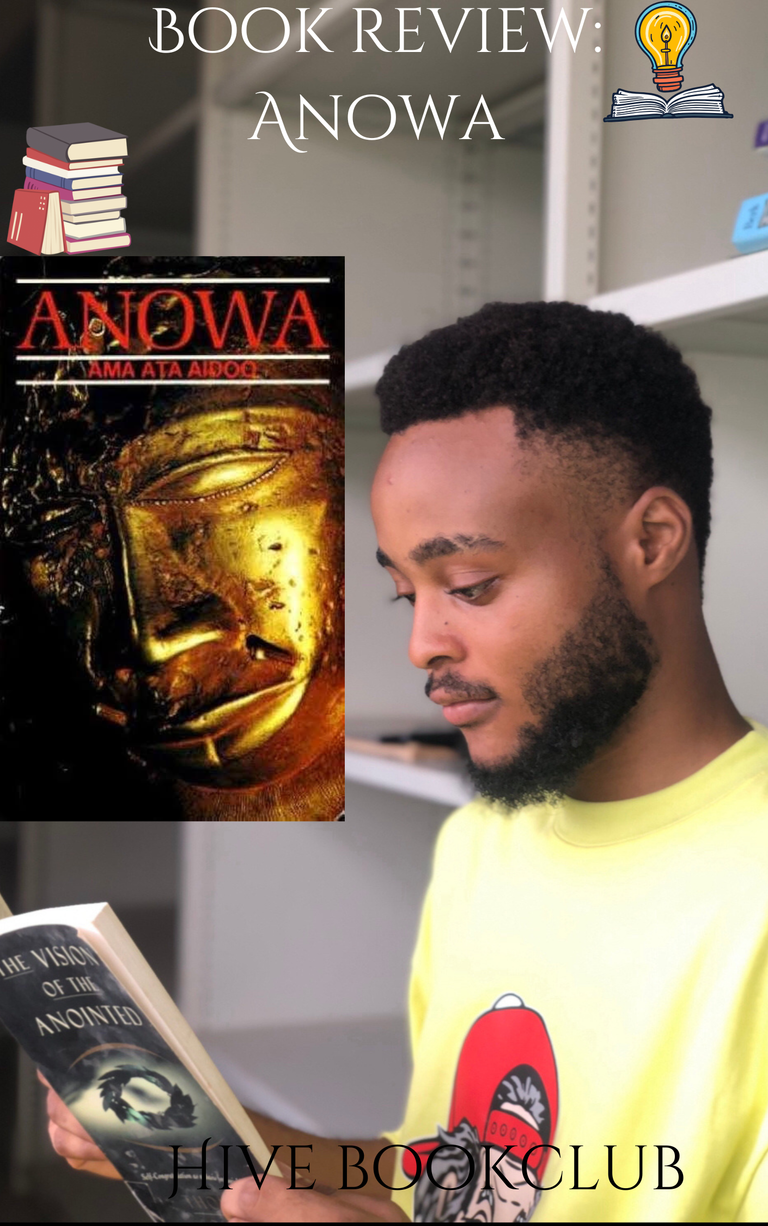
Over the years, African women authors have made significant contributions to the field of literature. Writers like Lila Momple, Zoe Wicomb, Ba Mariama, and Nawal El Sadawi, among others, have used their works to explore issues of culture, identity, and social injustice against women. Of all these authors, one I am particularly familiar with is Nawal El Sadawi, an Egyptian author whose work frequently addresses women’s rights and social injustice, particularly in the Arab world. A very good example of this is God Dies by the Nile. In this post, I'll be reviewing a book similar to this: Anowa by Ama Ata Aidoo, a Ghanaian author. I haven’t read a Ghanaian book in a while, this one really stood out for me.
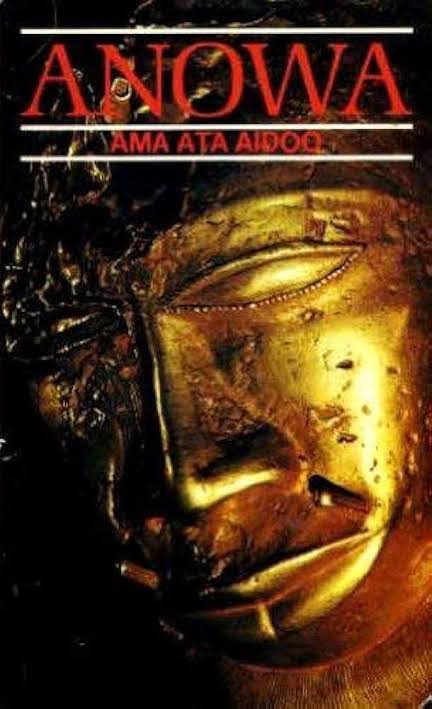
Ama Ata Aidoo was born on March 23, 1942. She died on May 31, 2023. She was one of the best women writers who won multiple awards. She published her first work, The Dilemma of a Ghost in 1965. At that time, there were only African male dramatists. However, with her work, she became the first-ever female African dramatist. Just like Nawal El Sadawi and other African women authors, her works explore oppression against women, gender discrimination, and culture. She was one of Africa’s most prolific and versatile writers.
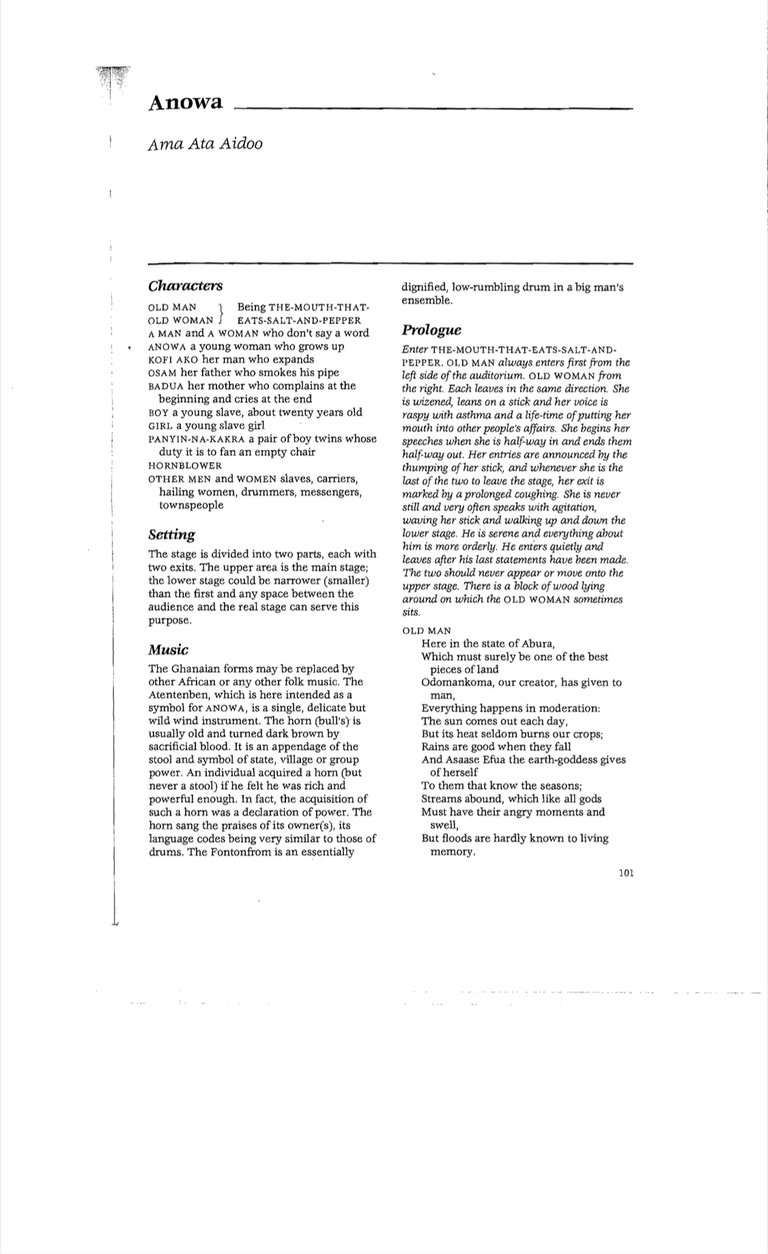
Anowa, Ama Ata Aidoo’s second novel was published in 1970, 28 years after she published her first book. The book draws upon Ghanaian forms of storytelling. I don’t know what Ghanaian storytelling was like, but I suspect it is just like the general African storytelling where kids sit down at night time when the moon’s eyes are still bright and not covered by the clouds. They form a big circle under a shade, which is usually a very big tree. Usually, the storyteller is an elderly and experienced person who has seen life from different angles. According to the author, this book draws inspiration from the stories her mother told her when she was young. The book is set in Gold Coast, about 30 years after the Bond Treaty.
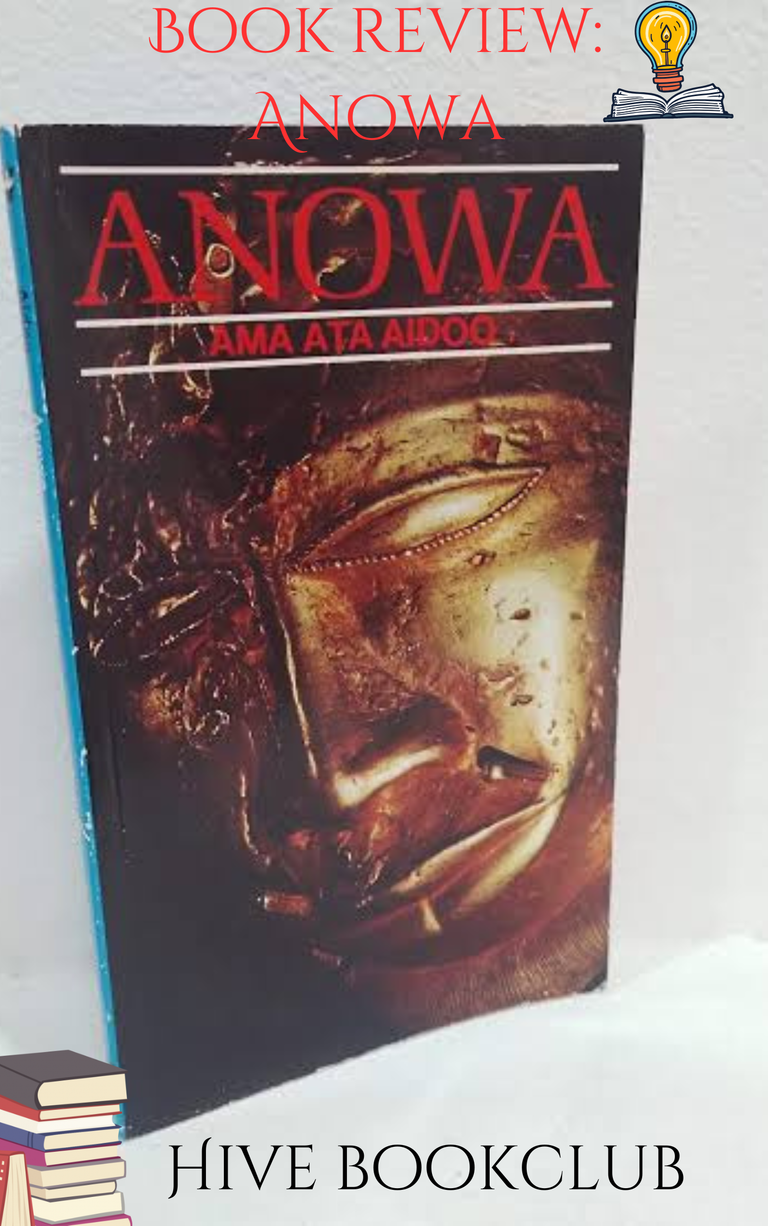
The prologue opens with an old man and woman entering the stage. The old woman is wrestling, walking to and fro the stage. She coughs now and then, her voice raspy with asthma and a lifetime of putting her mouth in other people's affairs. On the other hand, the old man is composed and calm. Together, they are known as The Mouth-That-Eats-Salt-And-Pepper. The Old man talks about their village, Yebi, and how it has prospered over the years. But, there is a big problem- Anowa, the lady who has refused every man in the village. Unlike other ladies in the village, Anowa is odd. They think she isn't human.
The play introduces Anowa’s parents, Abena Badua and Osam. Badua complains that her daughter is unmarried six years after puberty. Osam on the other hand is unconcerned about this issue “I am a man. Getting daughters married is not one of my duties.” He’d once suggested that Anowa become a priestess. Badua says that priests and priestesses are not human, they are more like gods and her daughter will never be one. She wants her daughter to get married to a decent man and live a family life. As the play progresses, Anowa runs in with “good news.” She reveals that she has found the man she wants to marry- Kofi Ako. Immediately, Badua refuses this, calling Kofi Ako a good for nothing man. As always, Osam refuses to say anything. Badua is disappointed in her daughter. Anowa tells her that she will help him (Kofi Ako) do something with his life. The argument leads to a heated debate. Anowa angrily storms out of the house, promising not to ever return.
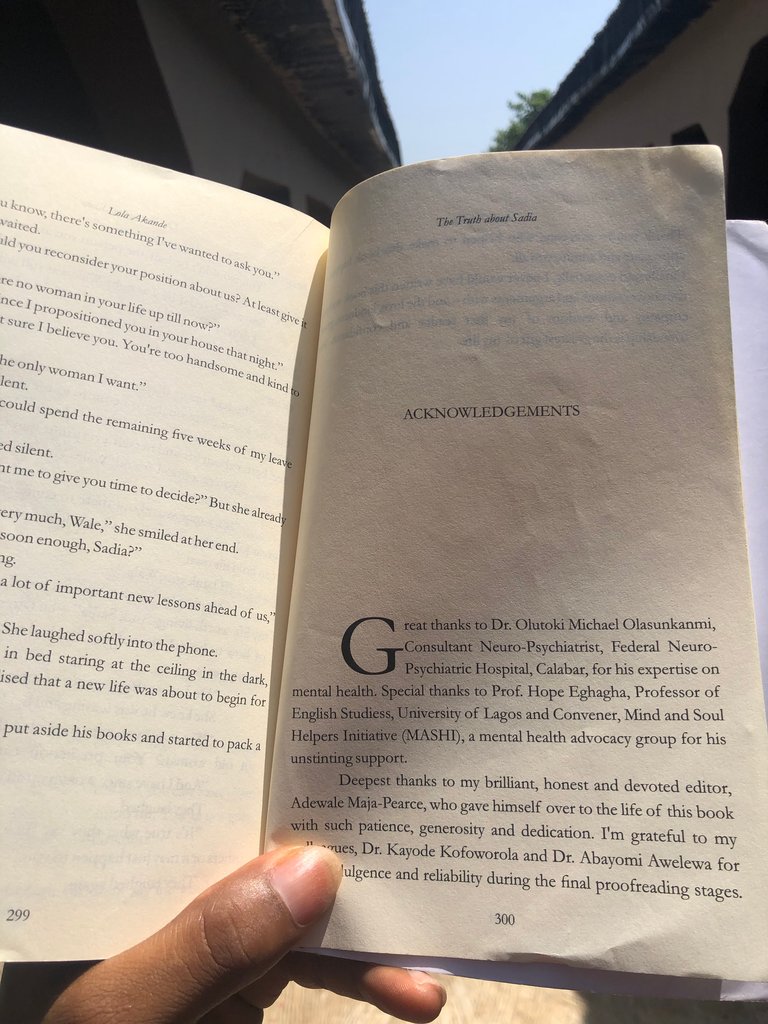
In phase 2 of the play, Anowa and Kofi have left Yebi and after a few years, they are seen selling animal skins on the road. Their work is stressful, having to carry animal skins all day, getting drenched by the rain and scorched by the sun. Kofi is scared that the job is too difficult for his wife, but she reassures him that she is strong. Anowa suggests that her husband marries another wife so she’ll help with the work, this upsets Kofi. As the discussion continues, Anowa talks about their childlessness. They have been married for more than 2 years without a child. Kofi tells her that the childlessness is her fault because she stresses herself too much.
Interestingly, Anowa finds out that indeed she is as much a woman as anyone else, capable of conceiving, but it is her husband who is impotent. What will she do? Will she stay in the marriage or go back to her parent's place?

One thing I like about this book is the concept of character development. Kofi Ako, Anowa’s impotent husband was regarded as a good for nothing man who had nothing. Badua, Osam, and other villagers referred to him as a fool. However, as the narrative progresses, this lowlife character turns out to be one of the richest men in the village, with slaves and properties.
Also, the author didn't give enough information about Kofi. I understand that the book is about the eponymous character, Anowa, but we should know a bit about Kofi. Where did he come from? How did he become impotent? Did he sell it to acquire wealth?
I rate this book 3 out of 5 stars.

